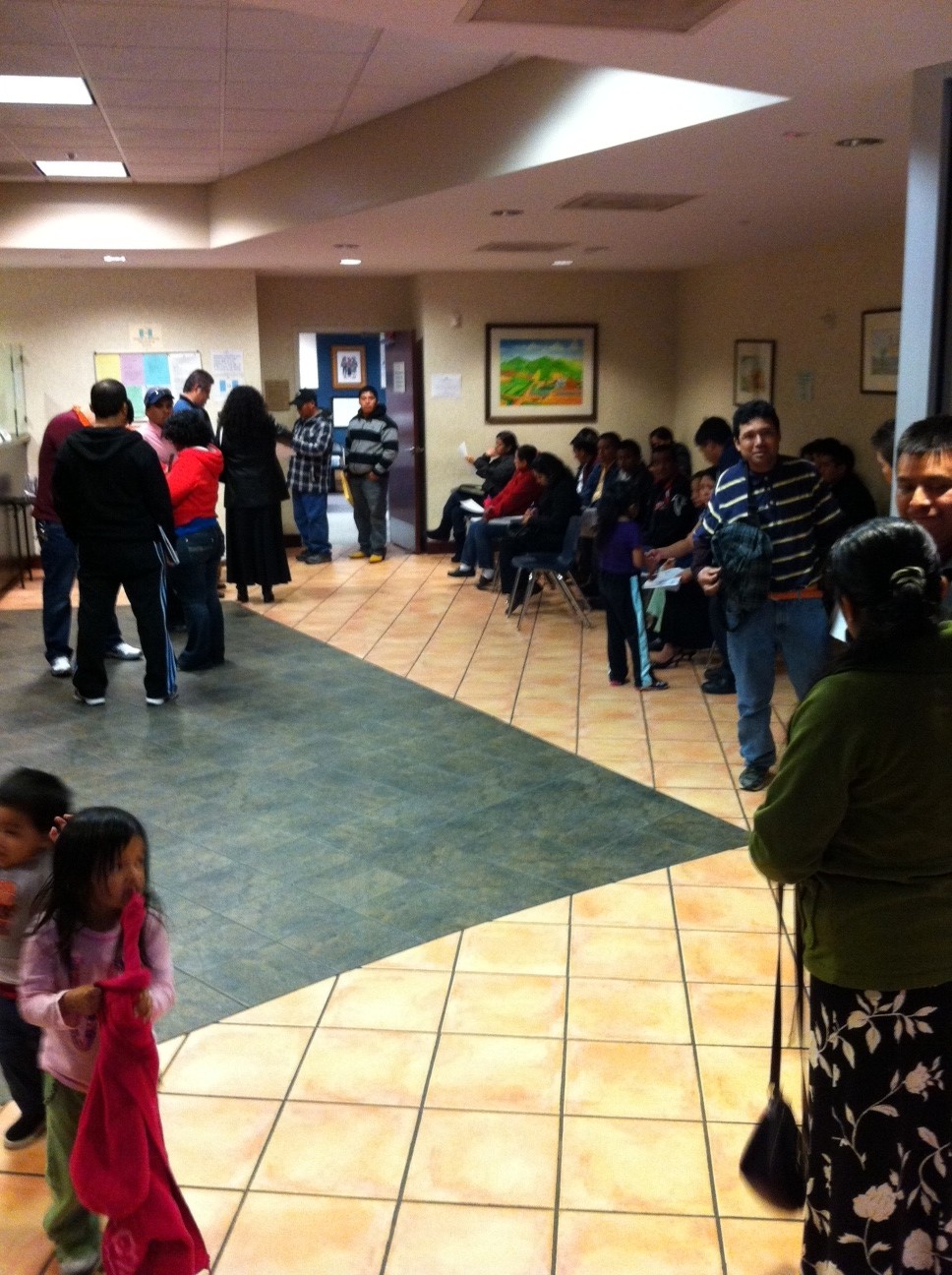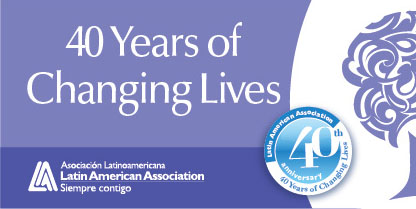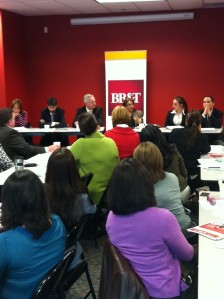The true impact of hb87 on the Latino community: As an aspiring communicator, I gaited into the Hispanic Corporate Leadership Forum hosted as part of the 40th Year Anniversary of the Latin American Association. It was a cold rainy day and after twirling through the spaghetti junction that is I-85, I found myself constructing a small table where I would meet and greet leaders of the Latino community. As the right-hand man, I signed the attendants in and gathered business cards beginning to realize that I was surrounded by more than just leaders—these were the changes of everyday Latino lives–and I was in the midst of an event of deep cultural awakening. The Latin American Consulates discussed the meeting with how HB87 has impacted their respective communities. Immigrant community challenges, racial profiling, and the need to educate the Latino community are the three main points that the forum discussed in this open conversational panel. The Consulates Town Hall came to order as the room filled with around 40 people. The room echoed in an introduction from Myrna Clemmons, Resource Development Manager of the Latin American Association, by beginning an intimate chat addressing the unique needs and concerns of our immigrant community inclusive of HB87. After a warm welcome of Jeffrey Tapia, the LAA’s executive director, the crowd silenced. This wasn’t just any other social party. A featured panelist of lawyers, consulates, and community leaders was assembled for this eye-opening event that included:
- Cónsul General of Guatemala- Señora Beatriz Illescas Putzeys de Cadena
- Vicecónsul of Guatemala- Rafael Novielli
- Cónsul General of Honduras– Señora Emelisa Gallejas
- Consul for Political, Economic & Social Affairs, General Consulate of Mexico- Raúl Carlos Saavedra Cinta
- Managing Partner of Kuck Immigration Partners LLC, The Immigration Law Firm- Charles H. Kuck
- Managing Director of Family Services, Latin American Association- Cynthia Roman
So what is HB87? According to the Georgia General Assembly, HB87 is summarized as:
“A BILL to be entitled an Act to enact the “Illegal Immigration Reform and Enforcement Act of 2011”; to amend the O.C.G.A., so as to provide for definitions; to provide for a private cause of action; to require private employers to use an employment eligibility verification system and provide for civil penalties; to provide for offenses; to provide for the investigation of illegal alien status; to provide authority for law enforcement officers to enforce federal immigration laws and to provide immunity; to provide for civil and criminal penalties; to modify provisions relating to training peace officers; to establish grant funding; to provide for the verification of the immigration status of foreign nationals; to provide that counties shall receive additional funding for confinement of state inmates; to require proof that private businesses are participating in the employment eligibility verification system; to provide for identification cards; to enact the “Secure and Verifiable Identity Document Act”; to provide for related matters; and for other purposes.”
The views expressed in this blog post are those of Benjamin Kepner. The reporting of this event in the form of a blog is to challenge the narrative and to help build a more credible one to organize people, raise awareness, and pursue causes regarding HB87. That does not necessarily involve activist journalism. Much of that is just responsible for journalism, filling in the gaps, covering the meeting, delving into documents, and creating more than just research from Google. Through my shoe-leather reporting, I found three imperatives that Latinos and Hispanic leaders alike must adhere to in order to cultivate and maintain an informed Latino community:
Understand immigrant community challenges and concerns. “Fear, panic, and mistrust.” – Rafael Novielli

Reduce today’s racial profiling of migration and law. “Americans love immigrants of the past.” – Charles H. Kuck
According to Charles H. Kuck, the use of the world illegal alien is slang, catch, and demeaning. An illegal alien is defined as a person who is present in the U.S. in violation of Federal law. Constant reports of other forms of racial profiling have also been seen in immigration services and law. In the long-term, it is hard to prove racial profiling, but leaders of the government need to recognize these signs quicker rather than later in order to reduce racial profiling. As Charles put it, what has been eye-opening for lawyers is the number of Hispanics in the courtroom because of DWI, or “DWH,”—driving while Hispanic. Tinting, tag lights, consulate I.D.’s, and passenger I.D’s are simple government regulations that citizens of the United States must abide by, but many Latinos are unfamiliar with these rules as many of these standardizations do not exist in their home countries. With problems of gasoline, drugs, mafia, and the drug cartels of Mexico–it’s no wonder there has been the cause for migration. According to Charles, Immigration policy such as the Morton Memo on Prosecutorial Discretion calls on ICE attorneys and employees to refrain from pursuing noncitizens with close family, educational, military, or other ties in the U.S. and instead spend the agency’s limited resources on persons who pose a serious threat to public safety or national security. The memorandum focuses on exercising discretion in cases involving victims, witnesses to crimes, and plaintiffs in good faith civil rights lawsuits. A solution to this may be for involving public officials to reach out and focus more on influencing the youth.
Provide access to information to educate the Latino community. “The Latin American Association helps Latino families achieve their aspirations for their academic, social and economic advancement.”-LAA Mission
Support and revenue for the Latino community are obtained through contributions, government grants, service fees, and other revenues. Unrestricted funding and a strong “Resource Development Business unit” are apart of the LAA that has served as a special purpose to address the Latino community. The LAA is an organization that has been fundamental in providing services and benefits for 600 Latinos per month. According to Cynthia Roman, many of the problems that the LAA has seen with Medicaid, birth certificate documentation applications, and food stamps are the need to register for them on computers now–but many do not have access to computers. Jeffrey Tapia emphasized that Latino documented citizens face the same community’s challenges that are still not erased yet either. Isolation, unemployment, racial profiling, parenting, and cheques cultures are what the LAA sees every day. Why must we be dependent on the Media to look for help? There is no substitute for an active, independent, and diverse press. In Mexico, the challenges have been the access to information. The law is very complex and hard for many to understand. Even law enforcement doesn’t fully understand the law with the 22 provisions. Consulates have to provide easy answers, pamphlets, and a hotline to educate the Latino community. Fortunately, there are organizations such as the Latin American Association that have a Latino Homeless Prevention for domestic violence and outreach centers to the community that collaborates with hospitals and foundations.
Final Thought: “With the help of the LAA and Hispanic Leaders, we can further the full integration of all Latino immigrants into American society as workers, family members, students, and leaders into a community that welcomes them and values their contributions.”




I needed to post you this very small word just to give many thanks the moment again just for the pleasant things you have featured on this page. This is quite remarkably open-handed of people like you to give freely just what a number of us would’ve sold as an ebook to get some money for themselves, most importantly seeing that you might have done it if you considered necessary. The principles also served to become great way to understand that the rest have the identical interest similar to mine to know many more in respect of this condition. I am sure there are numerous more pleasurable opportunities in the future for those who examine your website.